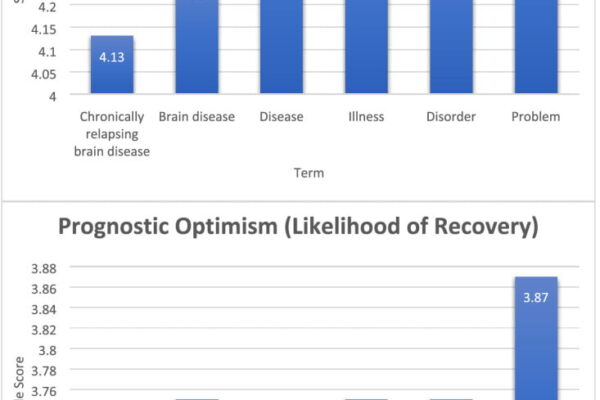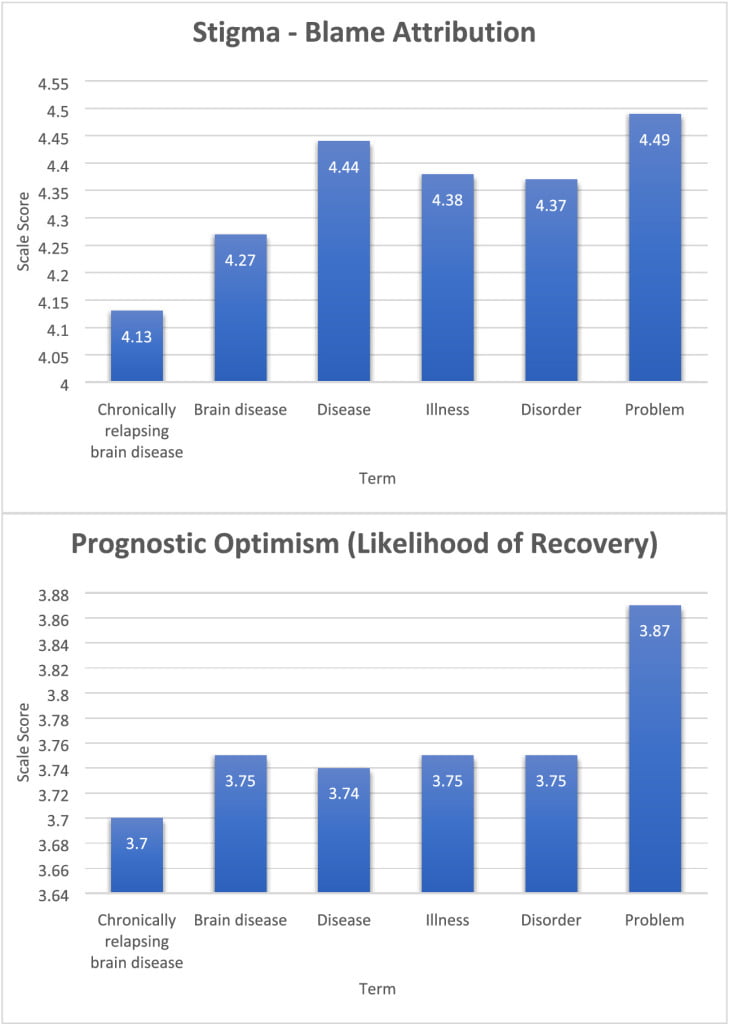What’s more harmful? Blame or pessimism?
Kelly et al. find that ‘chronically relapsing brain disease‘ was associated less stigmatizing blame and more pessimism about their capacity to recover, while ‘problem‘ was associated with more stigmatizing blame and more optimism for their capacity to recover.
…exposure to the ‘chronically relapsing brain disease’ term was associated with the lowest levels of stigmatizing blame attributions; in fact, exposure to any other term was associated with a significant increase in stigmatizing blame although, intriguingly, the blame effect was related in a linear ordinal fashion with ‘problem’, resulting in the greatest stigmatizing blame attribution. In contrast, study participants who were exposed to the person described as having an opioid ‘problem’ compared to ‘chronically relapsing brain disease’ exhibited the strongest beliefs that the person could recover (Fig. 1), were less dangerous and less likely to require continuing care. These findings support the use of the ‘chronically relapsing brain disease’ term to reduce stigmatizing blame, but simultaneously suggest that this may not be the best term to use to convey the more positive notion that someone with opioid‐related impairment is approachable and can recover; in that case, the less medical and more generic, ‘problem’ term may be optimal.
Kelly, J. F., Greene, M. C., and Abry, A. (2020) A US national randomized study to guide how best to reduce stigma when describing drug‐related impairment in practice and policy. Addiction, https://doi.org/10.1111/add.15333.
It seems noteworthy that the currently favored term, disorder, didn’t fare well. For me, this illustrates the tail-chasing we inflict on ourselves when we let the attitudes of others determine what language is acceptable or unacceptable. We shouldn’t surprised that their attitudes are irrational and inconsistent. Can we yoke our language to their attitudes without tying ourselves in knots and surrendering a little of our agency? I’m skeptical.
We do this with hopes of benefits like greater acceptance and reduced stigma, and there’s reason to believe those benefits can be real in some situations.
Are there also consequences to this approach? I don’t know.
Could this attention to changing our language distract us from the real problem (other people’s attitudes and the real world manifestations of those attitudes)? Could it divide us because we start policing/managing each other in an attempt to reduce the negative attitudes of others? Could it create new stratifications within our communities?

